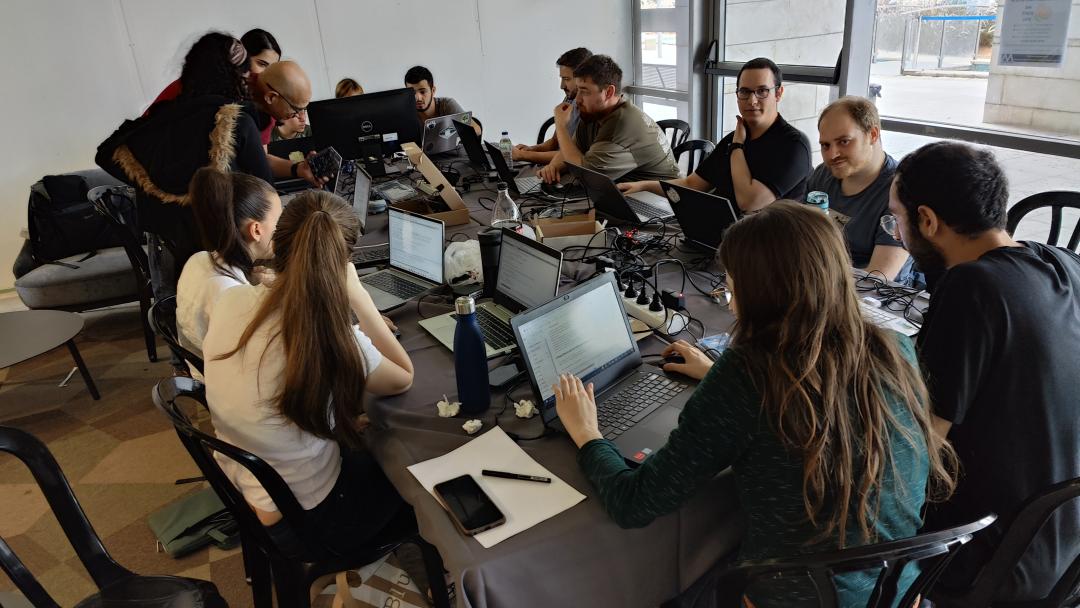Challenging our Students as part of their Grade

The winners of the concluding hackathon of the Digital Design Principles (DDP) course were the team who created an image-processing accelerator that can perform convolution using a dynamic kernel
Every year, the teaching staff of the DDP course conclude the course in a unique way – with a hackathon. You might be forgiven for thinking this is just for fun, but Prof. Adam Teman, the course’s academic supervisor, takes it very seriously: The hackathon is part of the mandatory course requirements. Held annually every July, this year it was sponsored by Intel and Sony Semiconductor Israel, which goes to show just how much it is valued by some of the industry’s major players.
This year, around 20 teams participated in the hackathon. In the weeks running up to the hackathon, teams worked on their respective projects, where they learned to plan and integrate hardware accelerators into PulpEnIX – a SoC platform developed at the EnICS Labs Impact Center, the chip design research center based in the Faculty of Engineering. The work involved students experimenting with planning and testing an environment that combined hardware and software, and they were tasked with applying the knowledge acquired during the semester. In the run-up to the hackathon, each team had to bring their solution to maturity and demonstrate it on an FPGA platform. “The hackathon adds in a competitive element, making the student tap into their imagination, while offering an opportunity to present the team’s work before the teaching staff, as well as external judges,” says Yonathan Shoshan, the course lecturer, and a veteran chip designer.
The course staff, headed by Udi Kra, prepares the hackathon challenge for several months, before presenting it to students. Currently about to complete his doctoral studies at Bar Ilan, Mr. Kra, a veteran engineer with more than 30 years of industrial experience, feels this is indeed a mission, contributing to the development of the future generation of engineers in Israel. The hackathon challenge is pitched to students about a month before the semester’s end, sending them to work on it around the clock. The hackathon culminates with a half-day event at the faculty’s lobby, where teams race to add features, put in some final touches and convince the team of judges why they deserve the first prize. By the end of the ceremonial event, a winner was announced: Team David Levy and Ron Wulfo, fourth-year students in the NanoElectronics track. The two opted to plan, apply and demonstrate an image-processing accelerator capable of performing convolution with a dynamic kernel. “The solution presented by the students emphasized the value of utilizing hardware accelerators; it worked as planned and involved several innovative solutions to address the implementation challenges,” concluded Udi Kra.
Last Updated Date : 30/07/2023



